Canadian News Media And “Fake News” Under A Microscope
April 29, 2017
In our latest survey, we examined a range of questions about how Canadians see the media today and their exposure to “fake news”. Over the next few days we will release three reports on what we learned.
Here’s what we found:
• People are twice as likely to say the quality of journalism is declining (26%) as improving (13%). However, this is significantly affected by the views of Conservative voters, who are far more likely to say journalism is deteriorating (42%)
• 85% say they have been exposed to “fake news stories” including 47% who say “quite a few” stories. Most (57%) of those who’ve been exposed to fake news said they read the stories. Among those who read fake news stories half said their views were affected and they were misled.
• We estimate that about 24.5 million Canadian adults have been exposed to “fake news” and 14.1 million have read content. About 7.5 million have said their opinion had been improperly informed because of the “fake news” they read.
• On the question of media bias, 58% think “the news media generally favour one political party over another, with Conservative voters 15 points more likely to feel this way than Liberal voters (69% versus 54%). Millennials were also far more likely than average to perceive a bias, as are residents of Alberta.
• We asked about perceived biases of different media outlets, and in most cases, roughly half saw no bias. The tendency was to see a Liberal bias at CBC, a Conservative bias at the National Post and Sun Newspapers, a slight tendency to see a Liberal bias at the CTV and Global, and mixed opinions about the Globe and Mail.
• We did find differences of opinion depending on the party respondents said they voted for in the 2015 Federal Election.
• Conservative voters were more likely to perceive a bias in the news media overall, particularly at the CBC. But at least a third of Conservative voters felt that CTV, Global, and the Globe and Mail favoured the Liberal Party and one in five felt the National Post and the Sun newspapers favoured the Liberal Party.
• Liberal and NDP voters held varied views but not substantially different from Conservatives. Both were more likely to feel that the CBC tended to favour the Liberals while the Sun and National Post favoured the Conservatives. Interestingly, Liberal voters were more likely to feel the Globe favours the Tories as opposed to the Liberals. The opposite view held by Conservative voters.
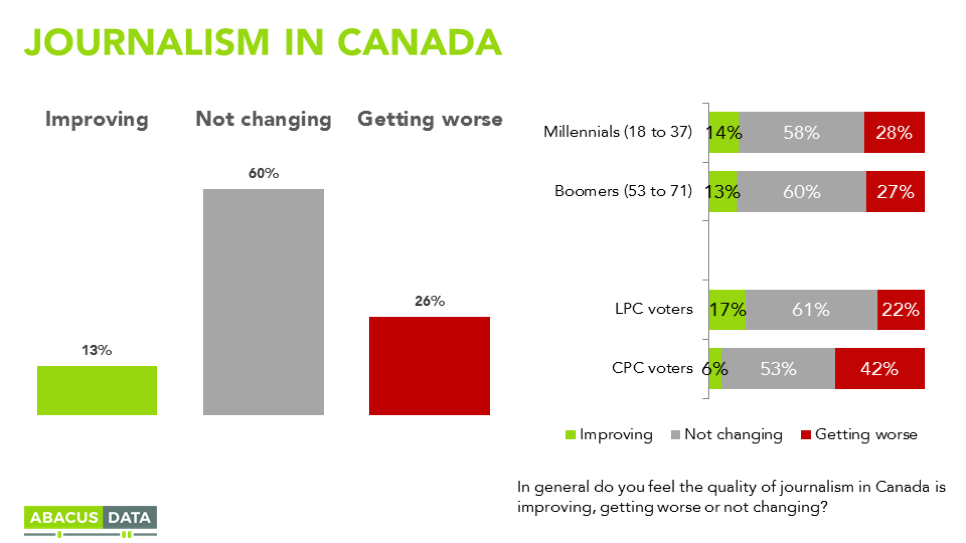
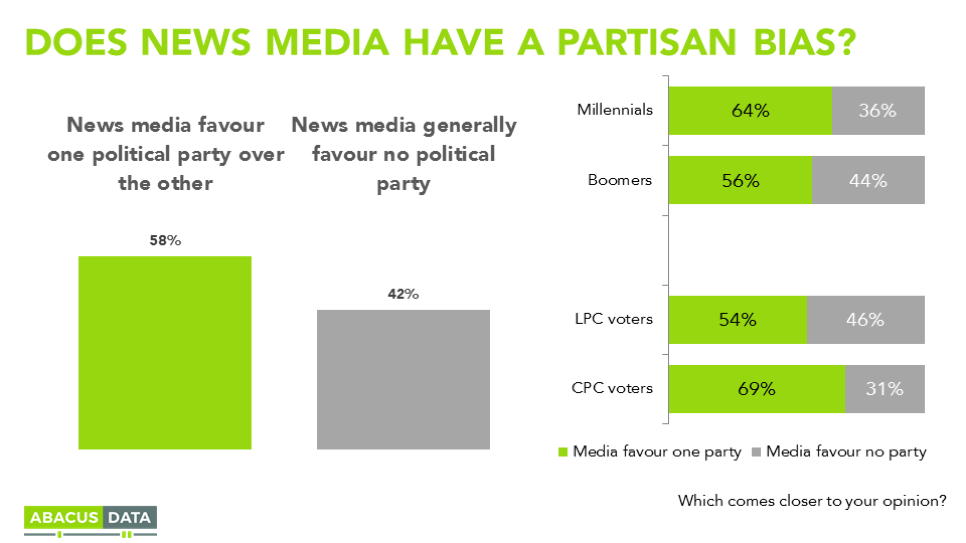
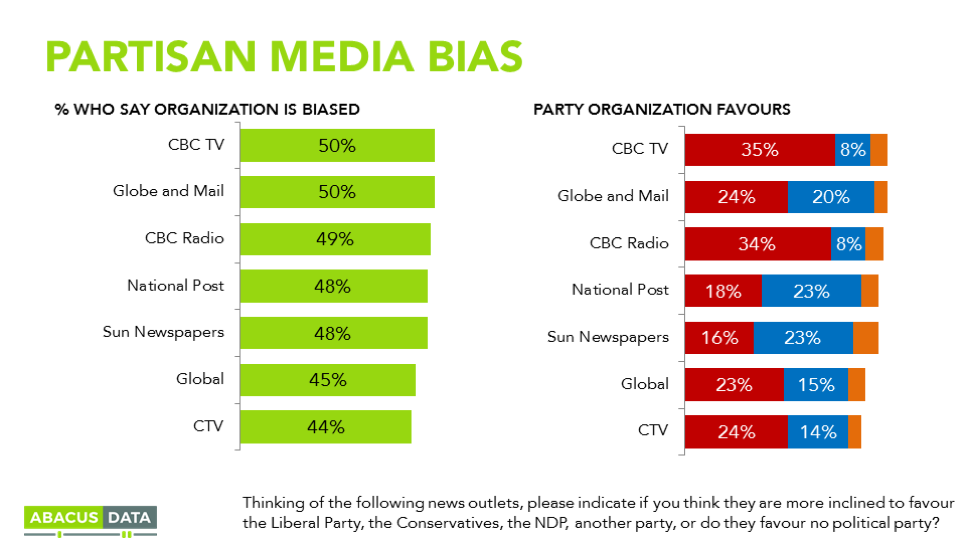
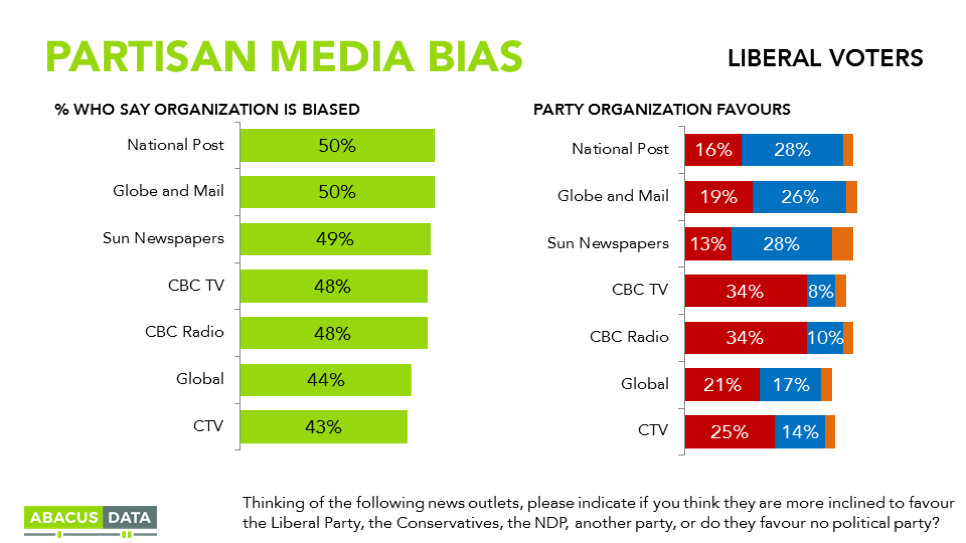
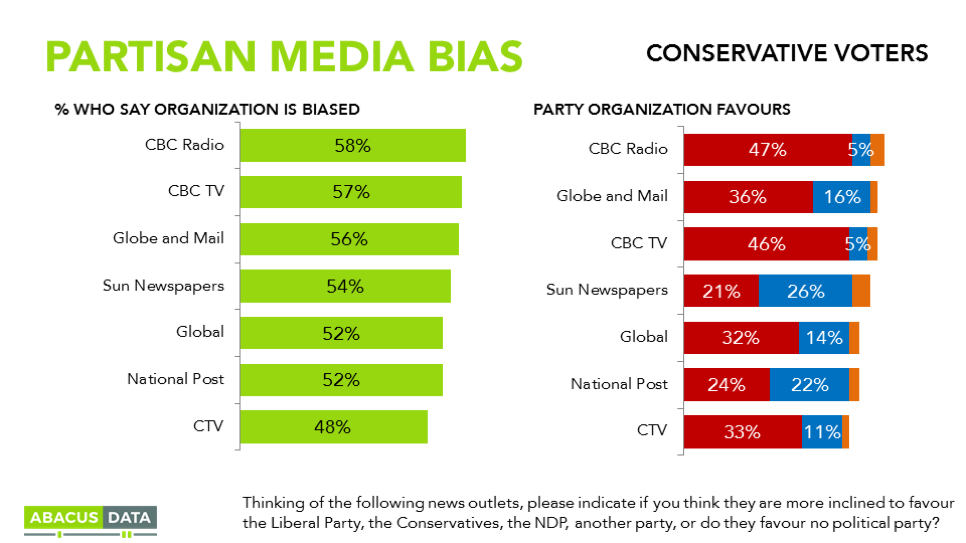

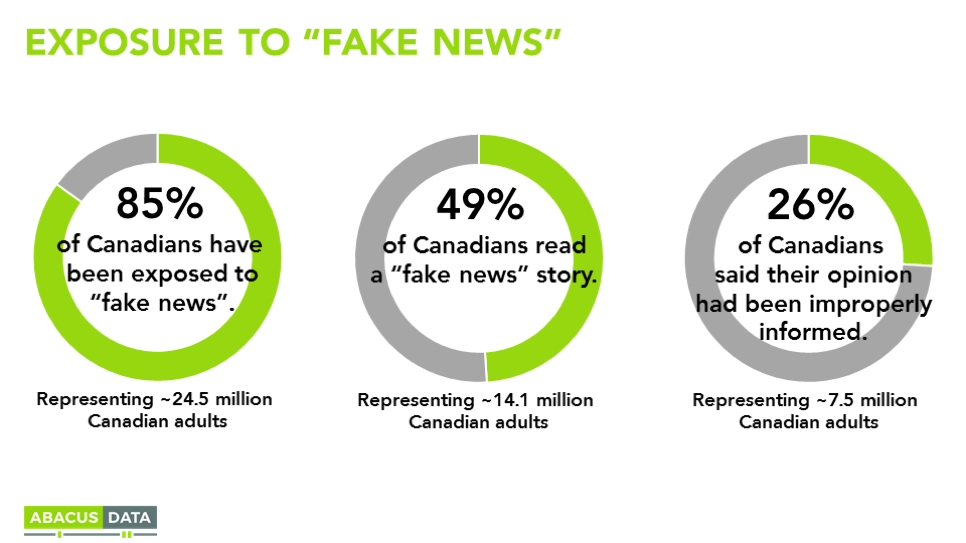
UPSHOT
According to Bruce Anderson: Canadian views of the media reveal a degree of concern with the way things have been going, but something short of profound dismay. While more people see a decline in quality than seeing an improvement, the majority opinion is that things aren’t changing that much.
However, there is broad awareness of and exposure to “fake news”, and many people say that this phenomenon has hampered their ability to form proper opinions.
Most Canadians believe major media outlets harbour political biases, although the tendency to believe this is quite a bit stronger among Conservative voters than others. Also interesting is that when it comes to translating that feeling of systemic bias into view of individual news outlets, Canadians seem a bit more tentative.
The extent to which Conservative voters see a bias that works against their interest is the most notable finding here: it is likely both the fuel for and the product of the anti-“mainstream news” themes employed by conservative partisans in recent years.
METHODOLOGY
Our survey was conducted online with 1,500 Canadians aged 18 and over from April 21 to 24, 2017. A random sample of panelists was invited to complete the survey from a large representative panel of over 500,000 Canadians.
The Marketing Research and Intelligence Association policy limits statements about margins of sampling error for most online surveys. The margin of error for a comparable probability-based random sample of 1,500 is +/- 2.6%, 19 times out of 20.
The data were weighted according to census data to ensure that the sample matched Canada’s population according to age, gender, educational attainment, and region. Totals may not add up to 100 due to rounding.
ABACUS DATA INC.
We offer global research capacity with a strong focus on customer service, attention to detail and value-added insight. Our team combines the experience of our Chairman Bruce Anderson, one of Canada’s leading research executives for two decades, with the energy, creativity and research expertise of CEO David Coletto, Ph.D.




